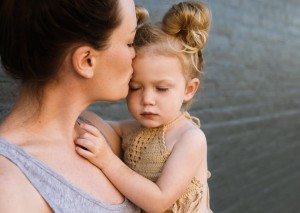 A study that was published by the European Society of Human Reproduction and Embryology found that children of single mothers are no more likely to suffer later in life than kids raised by a mother and a father “in terms of parent-child relationship or child development.”
A study that was published by the European Society of Human Reproduction and Embryology found that children of single mothers are no more likely to suffer later in life than kids raised by a mother and a father “in terms of parent-child relationship or child development.”
Researchers from the University of Amsterdam looked at 69 “single-mothers-by-choice.” By that, they meant women who knowingly chose to raise their child alone. The researchers also looked at 59 mothers from heterosexual two-parent families. All of the parents in the study had children between the ages of 1.5 years of age and 6 years of age.
In addition, the parent-child relationships, mothers’ social support network, and children’s well-being were compared between family types according to three valuated questionnaires. The analysis drew there main conclusions:
* There were no differences in emotional involvement or parental stress between family types.
* Single-mothers-by-choice showed significantly higher scores on the social support they received, but also on wanting more social support.
* There were no significant differences in the children’s internal and external problem behavior (well-being) between both family types.
Based upon these results, investigator Mathilde Brewaeys from the Centre of Expertise on Gender Dysphoria of the VU University Medical Centre, Amsterdam, reported that children growing up with single-mothers-by-choice appeared to enjoy a similar parent-child relationship as those in heterosexual two-parent families.
She also noted that having a strong social network is of crucial importance. The support systems welcomed by the single mothers in the study were either informal or formal. The formal examples could be parents, other family, friends, neighbors, or a nanny. The informal examples included teachers, family doctors, pediatricians, television programs, or articles about child rearing.
It appears that one of the reasons the study was done was because there is an assumption that growing up in a family without a father is not good for the child. This assumption is based on research into children whose parents started out as a heterosexual two-parent family, but then got divorced. The children experienced parental conflict.
The new study included single-mothers-by-choice (not mothers who became single as a result of divorce.) Ms. Brewaeys concluded that any negative influence on child development depends more on a troubled parent-child relationship, and not on the absence of the father.
Related Articles on Families.com:

